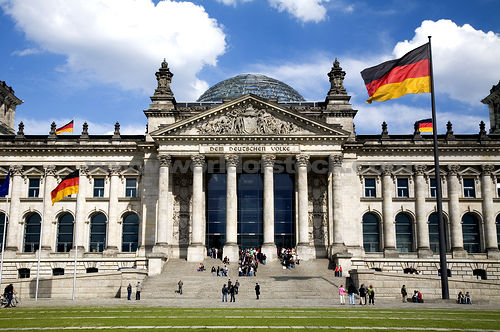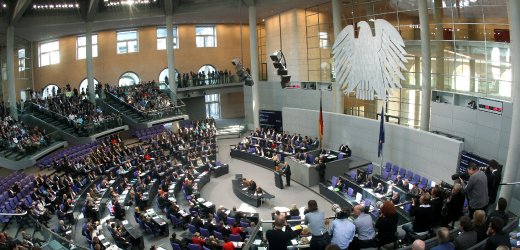
Despite the fact that pollsters are virtually certain about the outcome of tomorrow’s German elections – a resounding victory for Chancellor Angela Merkel and her Christain Democratic Party (the “CDU”) – the vote nevertheless presents a moment of profound seriousness for the future of Germany, the European Union and even US economic recovery.
In considering the ramification’s for Germany itself – the defacto political and economic leader of Europe – Merkel’s third term may well usher in several sharp departures from the past. Germany’s present economic position remains strong (particularly relative to other European economies and even the United States) with unemployment hovering at an eviable 5%. That’s the good news. What will most likely differentiate Merkel’s third term from its predesessors is the reality that the positive status quo cannot continue indeffinately unless Germany begins taking significant steps to cure its ailing banking system, makes serious investments both in physical and technological infrastructure and begins reinventing its transportation and energy networks in ways that avoid what some analysts see as looming catastrophe. Already, Germany’s post-Fukushima decision to phase out all nuclear power has sent domestic energy prices soaring. With rigid labor laws constraining the ability of large corporations to reorganize and create new efficiencies, higher prices for goods and services are already beginning to hit ordinary German consumers across the spectrum.
Similarly, Germany’s transportation problems (in some ways similar to the deterioration of roads, bridges, shipping and trains experienced here in the United States) could severely weaken the nation’s powerful manufacturing sector that relies on numerous highly complex systems to inject its goods into the world market. Education is another area demanding immediate attention – especially with regard to vocational training as a growing shortage of skilled workers will quickly impede Germany’s competitive edge. It’s not that these problems haven’t been forseeable during the past two terms but rather that the tipping point appears to have finally arrived. In other words, this time around Angela Merkel will likely have to become a different type of Angela Merkel.
Germany’s foreign policy challeges are also far greater than in previous election cycles. The Eurozone Crisis – in particular the still-worsening situation in Greece – has caused massive tension both inside and outside Germany. Many Germans are fed up with bailouts yet a majority still fears that a collapse of the Eurozone could produce even worse economic and political consequences. Merkel certainly doesn’t want to be remembered as the leader who allowed Greece to descend into fascist or communist dictatorship – both real possibilities should Germany continue demanding ever greater levels of austerity. Moreover, Germany’s export economy has benefited tremendously from the Eurozone’s free trade policies and easy access to neighboring markets. Those aren’t benefits the nation can easily afford to abandon.
In terms of the election’s broader effects on the EU, much will be determined by the type of coalition government formed with the CDU. As Slate explains in a highly detailed analysis of German’s electoral system, this is probably the most critical, least understood and unpredictable aspect of the election to watch. Whichever way Germany turns, Merkel will need to react accordingly and deal with the reality that certain potential coalitions could substantially diminish her power. The Slate piece is well worth reading in that regard.

The US also has a lot at stake in this election on issues ranging from export led growth (i.e. will Germans be more or less able to afford American products?), to geopolitical issues including everything from Syria to relatins with Vladimir Putin. The New York Times noted that in the past several days, there appears to have been a serge in a support for a radical anti-Europe party knows as Alternative for Germany. Although, the party is unlikely gain anything close to a number of seats necessary to wield real power, their emergence could cause sufficient disruption to force Merkel into a coalition with the leftist and more anti-Euro Social Democrats – a situation that would undoubtedly result in widespread instability and much shakier US-German economic relations.
The upshot is that Germany is looking at an election that merely appears predictable on the surface. A deeper dive reveals an enormously consequential set of “unknowns” to which world leaders, global corporations and investors should all be paying extremely close attention. Rest assured, the markets will most surely be taking notice – now and for years to come.

